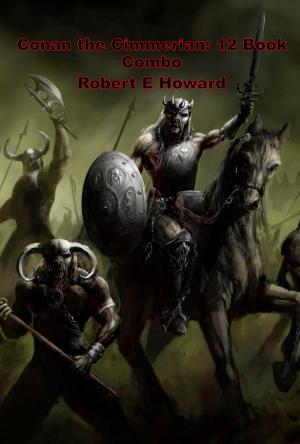| Author: | Herman Melville | ISBN: | 1230000314709 |
| Publisher: | Starling and Black | Publication: | March 20, 2015 |
| Imprint: | Language: | English |
| Author: | Herman Melville |
| ISBN: | 1230000314709 |
| Publisher: | Starling and Black |
| Publication: | March 20, 2015 |
| Imprint: | |
| Language: | English |
It was not a very white jacket, but white enough, in all conscience, as the sequel will show.
The way I came by it was this.
When our frigate lay in Callao, on the coast of Peru—her last harbour in the Pacific—I found myself without a grego, or sailor's surtout; and as, toward the end of a three years' cruise, no pea-jackets could be had from the purser's steward: and being bound for Cape Horn, some sort of a substitute was indispensable; I employed myself, for several days, in manufacturing an outlandish garment of my own devising, to shelter me from the boisterous weather we were so soon to encounter.
It was nothing more than a white duck frock, or rather shirt: which, laying on deck, I folded double at the bosom, and by then making a continuation of the slit there, opened it lengthwise—much as you would cut a leaf in the last new novel. The gash being made, a metamorphosis took place, transcending any related by Ovid. For, presto! the shirt was a coat!—a strange-looking coat, to be sure; of a Quakerish amplitude about the skirts; with an infirm, tumble-down collar; and a clumsy fullness about the wristbands; and white, yea, white as a shroud. And my shroud it afterward came very near proving, as he who reads further will find.
But, bless me, my friend, what sort of a summer jacket is this, in which to weather Cape Horn? A very tasty, and beautiful white linen garment it may have seemed; but then, people almost universally sport their linen next to their skin.
It was not a very white jacket, but white enough, in all conscience, as the sequel will show.
The way I came by it was this.
When our frigate lay in Callao, on the coast of Peru—her last harbour in the Pacific—I found myself without a grego, or sailor's surtout; and as, toward the end of a three years' cruise, no pea-jackets could be had from the purser's steward: and being bound for Cape Horn, some sort of a substitute was indispensable; I employed myself, for several days, in manufacturing an outlandish garment of my own devising, to shelter me from the boisterous weather we were so soon to encounter.
It was nothing more than a white duck frock, or rather shirt: which, laying on deck, I folded double at the bosom, and by then making a continuation of the slit there, opened it lengthwise—much as you would cut a leaf in the last new novel. The gash being made, a metamorphosis took place, transcending any related by Ovid. For, presto! the shirt was a coat!—a strange-looking coat, to be sure; of a Quakerish amplitude about the skirts; with an infirm, tumble-down collar; and a clumsy fullness about the wristbands; and white, yea, white as a shroud. And my shroud it afterward came very near proving, as he who reads further will find.
But, bless me, my friend, what sort of a summer jacket is this, in which to weather Cape Horn? A very tasty, and beautiful white linen garment it may have seemed; but then, people almost universally sport their linen next to their skin.















